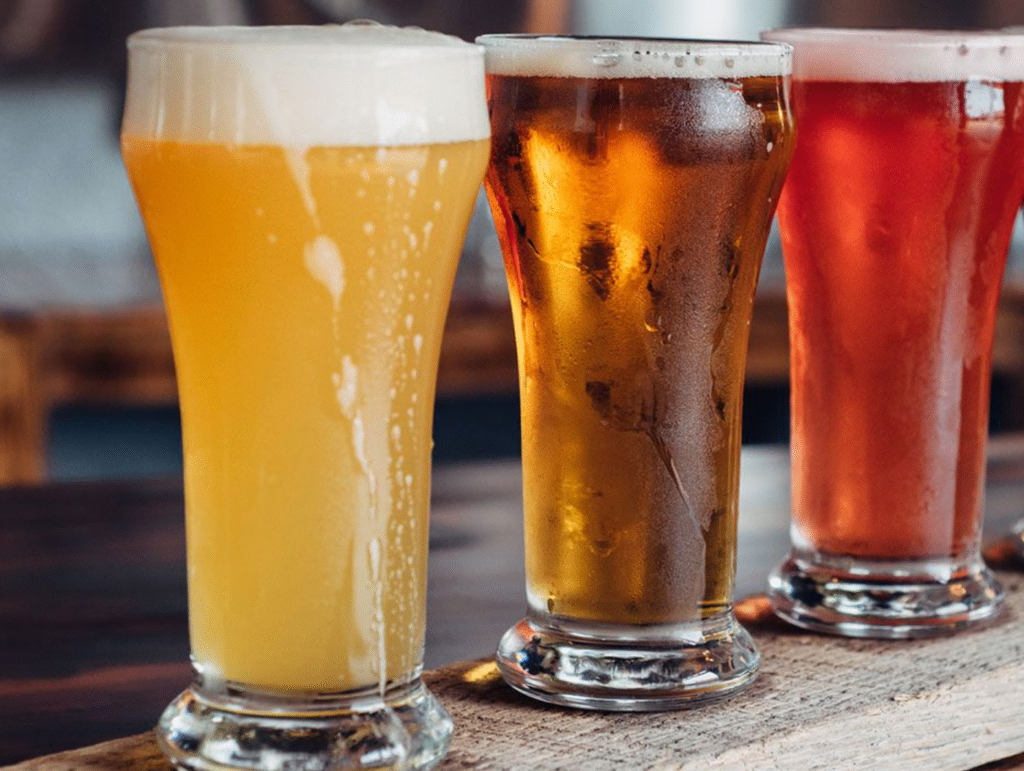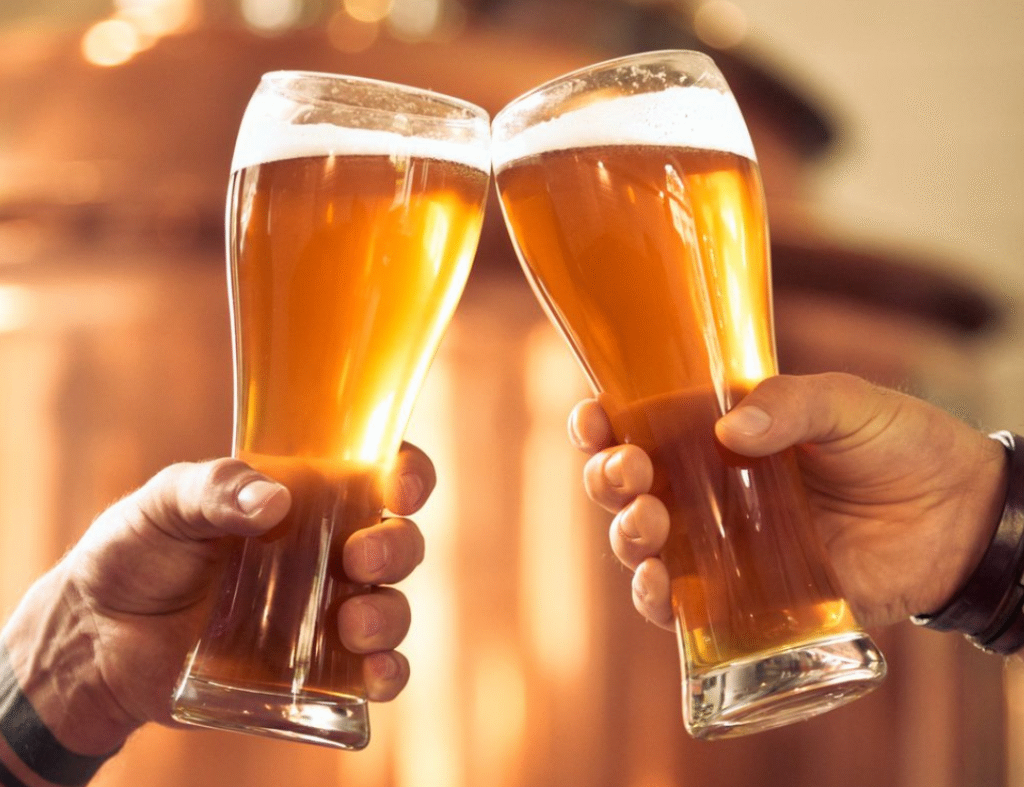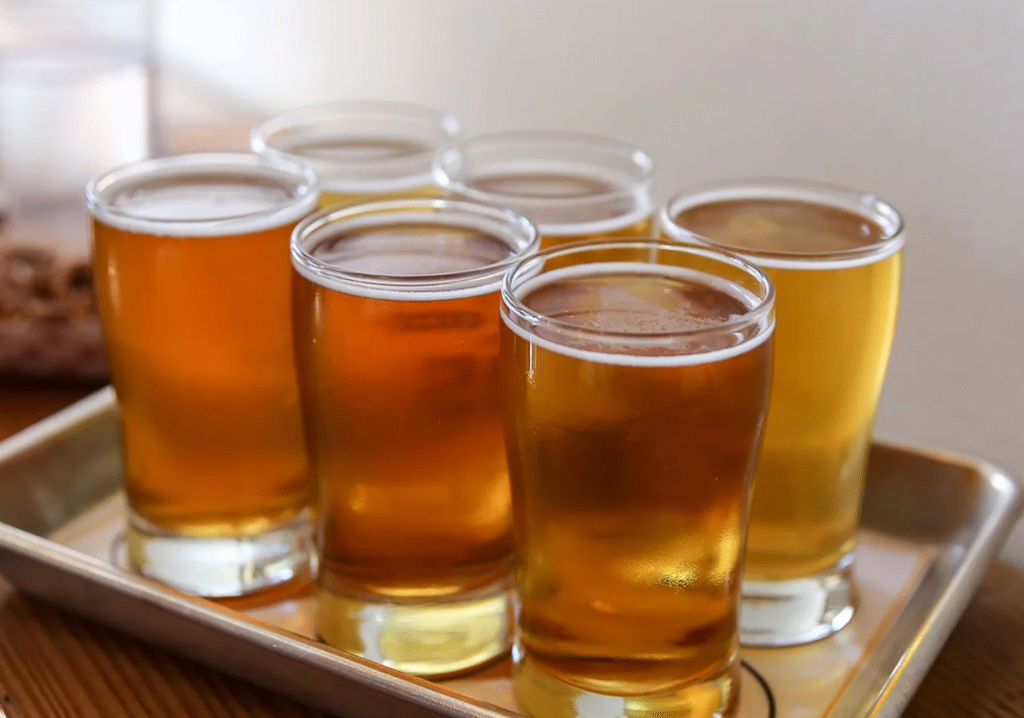Table of Contents
Craft beer is on the rise and more people are becoming familiar with its unique flavors, aromas, appearance, and ABV (alcohol by volume). However, the world of malt liquor has become clouded in confusion. With enough brands lining store shelves to make any craft beer fan’s head spin – many don’t know where to start. In this post we will provide you with an overview of both malt liquors and beers so that you can pick which best meets your needs when it comes time to stock up for your next party or night out!
We’ll discuss everything from ingredients to ABV levels so that you can make an informed decision when picking a brew for yourself. So whether you’re looking for something light or strong, sweet or bitter – we’ll arm you with all the information needed at every step of your boozy journey!
What is Malt Liquor?

Malt liquor is a type of beer that typically comes in large cans or bottles and is known for its high alcohol content. It has a slightly sweet taste due to the higher levels of malt used during fermentation, which give it a potent aroma and flavor. Malt liquors are usually more affordable than many other types of beer, making them ideal for those looking for an inexpensive way to enjoy some drinks without breaking the bank.
What is Beer?

Beer is an alcoholic beverage made from fermented grains such as barley, wheat, and rye. It can vary greatly in terms of color, texture, strength and flavor depending on the ingredients used during brewing as well as the process followed. Beers can range from light lagers to heavier ales with a variety of unique tastes and aromas.
Origins and History
Malt liquor has been around since the early 1800s, when it was first created by German immigrants in the US. Since then, its popularity has increased steadily over time – with many brands creating their own versions of malt liquors to suit different palates. Beers have been around for centuries and can trace their origins back even further than malt liquors. From traditional ales to modern IPAs, beers come in all shapes and sizes and can be found almost everywhere.
Flavor Profile Comparison
Malt liquors typically have a sweet, grainy aroma with notes of caramel and toffee. The taste is usually smooth and slightly malty, with hints of honey or molasses. Beers can come in many different aromas and flavors depending on the type. Popular types range from hoppy IPAs to fruity wheat beers and even sour ales.
How the Brewing Process Affects Taste Profiles?
Malt liquors are brewed with a higher ratio of malt to hops, which gives them their signature sweetness and full body. Beers on the other hand, tend to be brewed with a higher ratio of hops to malt, producing more bitterness and complexity in flavor.

Alcohol Content Comparisons
ABV (Alcohol by Volume) Comparison
Malt liquors generally have a higher alcohol content than beers, ranging from 4.5 – 10% ABV. Beers can range from as low as 3.0% ABV to well over 12%, depending on the type of beer and the brewing process used.
Calorie Counts for Different Varieties
Calorie counts also vary widely between malt liquors and beers. Generally speaking, malt liquors tend to be higher in calories due to the extra sugar content from the malt used during fermentation. Beers can range anywhere from low-calorie light lagers to high calorie stouts and other dark ales.
How ABV and Calories Affect Consumer Health?
The higher ABV levels of malt liquors mean that they can be quite dangerous if consumed in excess, due to the higher alcohol content leading to greater intoxication. Beers typically have a lower ABV level, meaning that it takes longer for the consumer to reach their limit.
Calorie-wise, both malt liquors and beers can contribute to negative health effects if consumed excessively. Therefore, it is important to monitor your consumption and pay attention to the nutritional information of the brews you are drinking.
Effects on Consumers

Physical Effects
Malt liquors can have a greater impact on your physical health due to the high alcohol content. The effects of excess consumption may be more severe, such as increased risk of liver damage or impaired motor skills. Beers contain less alcohol, so they won’t affect you as quickly or severely, but prolonged and excessive drinking can still lead to negative health outcomes.
Mental Effects
The effects of malt liquors can be more intense and lead to quicker intoxication, which can result in impaired judgement or recklessness. Beers typically don’t affect mental clarity in the same way as malt liquors, but excessive consumption can still lead to increased risk taking behavior or hangovers.
Which One Is Healthier?
It is difficult to definitively say which one is healthier, as both malt liquors and beers can have significant health risks if consumed in excess. Moderate alcohol consumption of either type can provide some health benefits, such as improved mood or reduced stress, but any excessive drinking should be avoided.
Frequently Asked Questions | Malt Liquor vs Beer
1. Is malt liquor stronger than beer?
Generally, malt liquors contain a higher alcohol content than traditional beers, usually ranging from 5-7% ABV (alcohol by volume). This is because malt liquor contains more fermented grain, which increases both the flavor and alcohol content of the beverage. Some malt liquors can even reach up to 9.5% ABV or higher. On the other hand, standard beer typically ranges anywhere from 4-6% ABV or lower.
2. What does “malt” in malt liquor mean?
Malt refers to processed grains such as barley and wheat that are used in brewing certain types of alcoholic beverages like beer and whiskey. During the brewing process, enzymes from the grains break down starches into sugar, which ferments and produces alcohol. Malt liquors are beers that contain a high concentration of malt, giving them a higher alcohol content than standard beer.
3. Can malt liquor give you a hangover?
Yes, drinking too much of any alcoholic beverage can lead to a hangover the next day. However, since malt liquors typically have a higher alcohol content than standard beers, they may cause worse hangovers due to the increased amount of alcohol consumed in one serving. Additionally, certain ingredients used in brewing process may also contribute to headaches or other hangover symptoms.
4. Can I drink malt liquor cold?
Yes, you can drink malt liquor either cold or at room temperature. However, it is generally recommended that for maximum flavor, malt liquors should be served at a temperature between 45-50 degrees Fahrenheit (7-10 degrees Celsius). This will help bring out the full flavors of the beverage without masking them with excessive coldness.
Final Thoughts
When it comes to beer and malt liquor, there are a variety of differences that affect the flavor profile, alcohol content, nutritional information, and effects on consumers. Malt liquors tend to have higher ABVs and more calories than beers, making them more dangerous when consumed in excess. Beers typically contain lower ABVs and fewer calories, so they are a safer option if you are looking to enjoy the flavor without over indulging. Ultimately, it is important to be mindful of your consumption and pay attention to the nutritional information of the brews you choose. Enjoy responsibly!
Read more at Ohsnap Cupcakes!